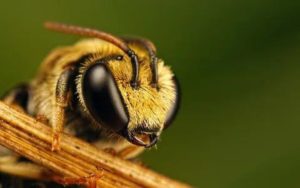This report explores the intriguing phenomenon of nectar fermentation in hot weather and its effects on bee behavior, particularly the consequences of intoxication on hive dynamics. As environmental factors such as temperature play a pivotal role in the production and quality of nectar, understanding these processes is crucial to grasping the broader implications for bee health and colony cohesion.
Bees play a significant role in pollination, which is essential for the reproduction of many plants and the production of fruits and vegetables. They collect nectar from flowers, which serves as a primary energy source. Under certain conditions, particularly during hot weather, this nectar can undergo fermentation. The process of fermentation can significantly alter the nectar’s chemical composition, resulting in a liquid that contains alcohol, similar to beverages consumed by humans.
Fermentation Process
Nectar is primarily composed of sugars (e.g., sucrose, glucose, fructose) which serve as energy sources for bees. In warm weather, natural yeast present in the environment can metabolize these sugars into alcohol as the nectar sits in flowers, leading to the fermentation process. The following conditions typically contribute to nectar fermentation:
– High temperatures: Warm air accelerates the metabolic processes of yeast.
– Increased sugar concentration: Conditions that promote high sugar content can enhance fermentation.
– Time: Prolonged exposure of nectar to warm temperatures can result in higher alcohol concentrations.
Effects of Intoxication on Bee Behavior
As bees consume fermented nectar, they may experience intoxication, which impacts their movement and coordination. The effects of alcohol on bees can be compared to those observed in larger animals, leading to:
– Loss of coordination: Inebriated bees may display erratic flight patterns, struggling to navigate.
– Impaired communication: Bees rely on pheromones and signals to communicate within the hive; intoxicated bees may fail to convey important information.
– Disorientation: Intoxicated bees may become disoriented, leading to difficulty finding their way back to the hive.
Hive Dynamics and Rules
The social structure of a bee colony is highly organized and maintained through strict behavioral norms. When bees return to the hive inebriated, they are often unable to enter. The reactions of other bees toward drunk individuals include:
– Rejection: Guard bees do not permit intoxicated members to enter the hive. This is crucial for maintaining order and security.
– Isolation: Bees who are not allowed back into the hive may form a small, temporary group with others facing a similar fate, leading to an ephemeral community outside the hive.
– Learning opportunities: The necessity of sober behavior to maintain entry into the hive teaches a valuable lesson about the importance of moderation and responsibility.
Consequences for the Colony
The exclusion of drunk bees from the hive has several important implications for the colony:
1. Safety and Security: By not allowing inebriated bees to enter, the hive ensures that potentially disruptive behavior does not threaten the wellbeing of the colony.
2. Resource Management: Bees that are intoxicated might not perform their tasks effectively, such as foraging for nectar or caring for brood, which can lead to inefficiency in resource acquisition.
3. Health Considerations: Excessive alcohol consumption can negatively impact bee health, leading to potential diseases or impairments that might affect long-term survival.
Understanding the correlation between nectar fermentation, bee intoxication, and hive dynamics sheds light on the complex interactions and regulations within bee societies. This phenomenon highlights the importance of environmental conditions on the behavior of bees, which has far-reaching implications for pollination and ecosystem health. As climate change and rising temperatures become increasingly prevalent, it is essential to monitor the impacts on bee behavior and colony survival, ensuring that these critical pollinators can continue their vital role in the ecosystem.
Recommendations for Future Studies
– Monitor Temperature Impact: Continued research on how varying temperature ranges affect nectar composition and fermentation rates can provide insights into future bee behavior adaptations.
– Behavioral Studies: Understanding the long-term effects of alcohol exposure on bee health and functionality can inform conservation strategies.
– Conservation Efforts: Developing initiatives aimed at creating stable habitats that reduce extreme temperature impacts may help maintain bee populations and their essential roles in nature.

 Pazionmedia.com Pazion Media l Latest News l Politics l Sports l Entertainment
Pazionmedia.com Pazion Media l Latest News l Politics l Sports l Entertainment



